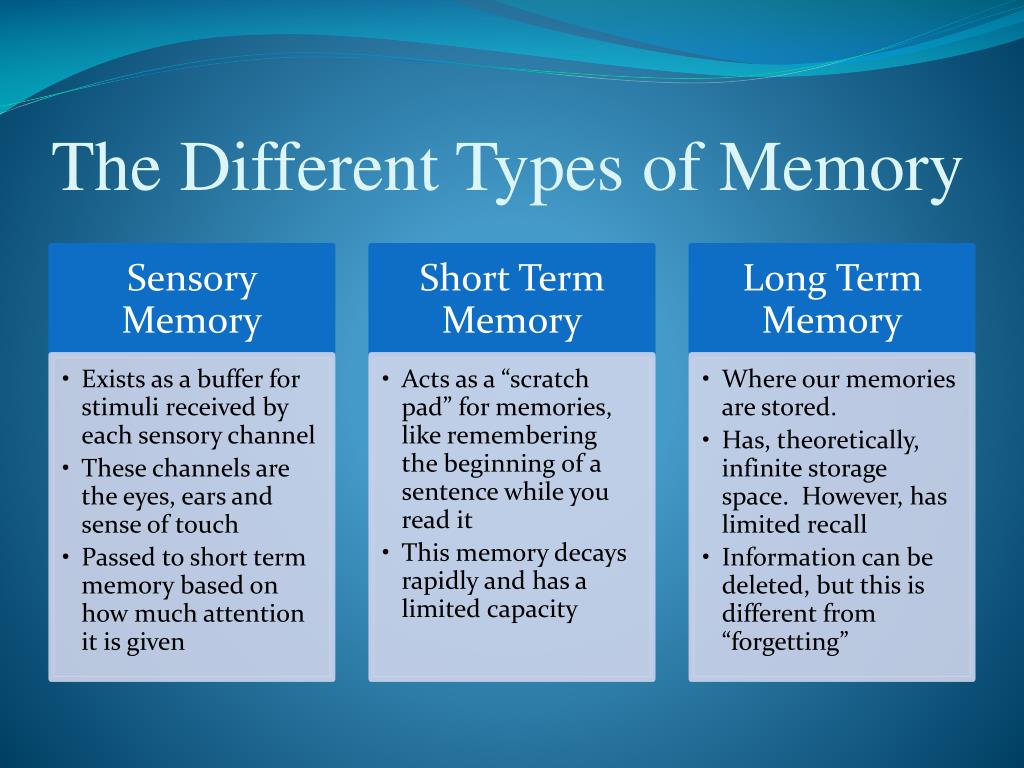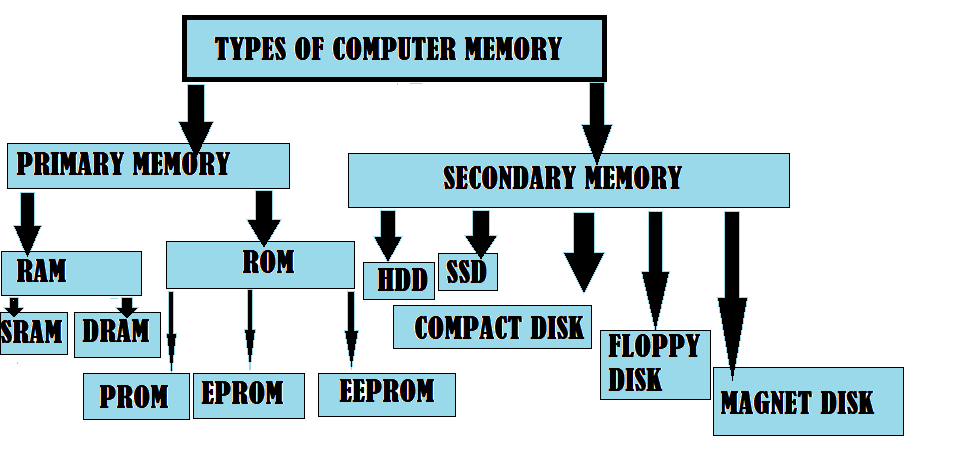
TYPES OF MEMORY HOW TO
It is where previous experiences aid in the performance of a task without conscious awareness of these previous experiences.Įxample: If you visited your aunt’s house when you were eight years old, then 20 years later you remember exactly how to get to the kitchen.Įxplicit memory is conscious, intentional remembering of information.

Information unconsciously enters the memory to affects thoughts and behavior, thus allowing someone to do things by rote. Implicit memory is information that is remembered unconsciously and effortlessly. There are three main distinctions among different types of memory: We store different types of information (procedures, personal experiences, facts, language, etc.) in our long term memory. Long-term memory is our brain’s system for storing, managing, and retrieving information. Working memory – is a subpart of short-term memory applied to cognitive tasks that temporarily stores, organizes and manipulates information. Working memory can be thought of a distinct segment of short term memory. It is the information that is held in our mind for a very short period of time before it is either dismissed or transferred to long-term memory. Short-term memory is the information we are currently aware of or thinking about. However, there are several additional types of memory.

Holds information for a long period of time (almost permanently) with a virtually unlimited capacity Holds information we are actively thinking about for about seven items for no more than 20 or 30 seconds at a time without rehearsal.


 0 kommentar(er)
0 kommentar(er)
